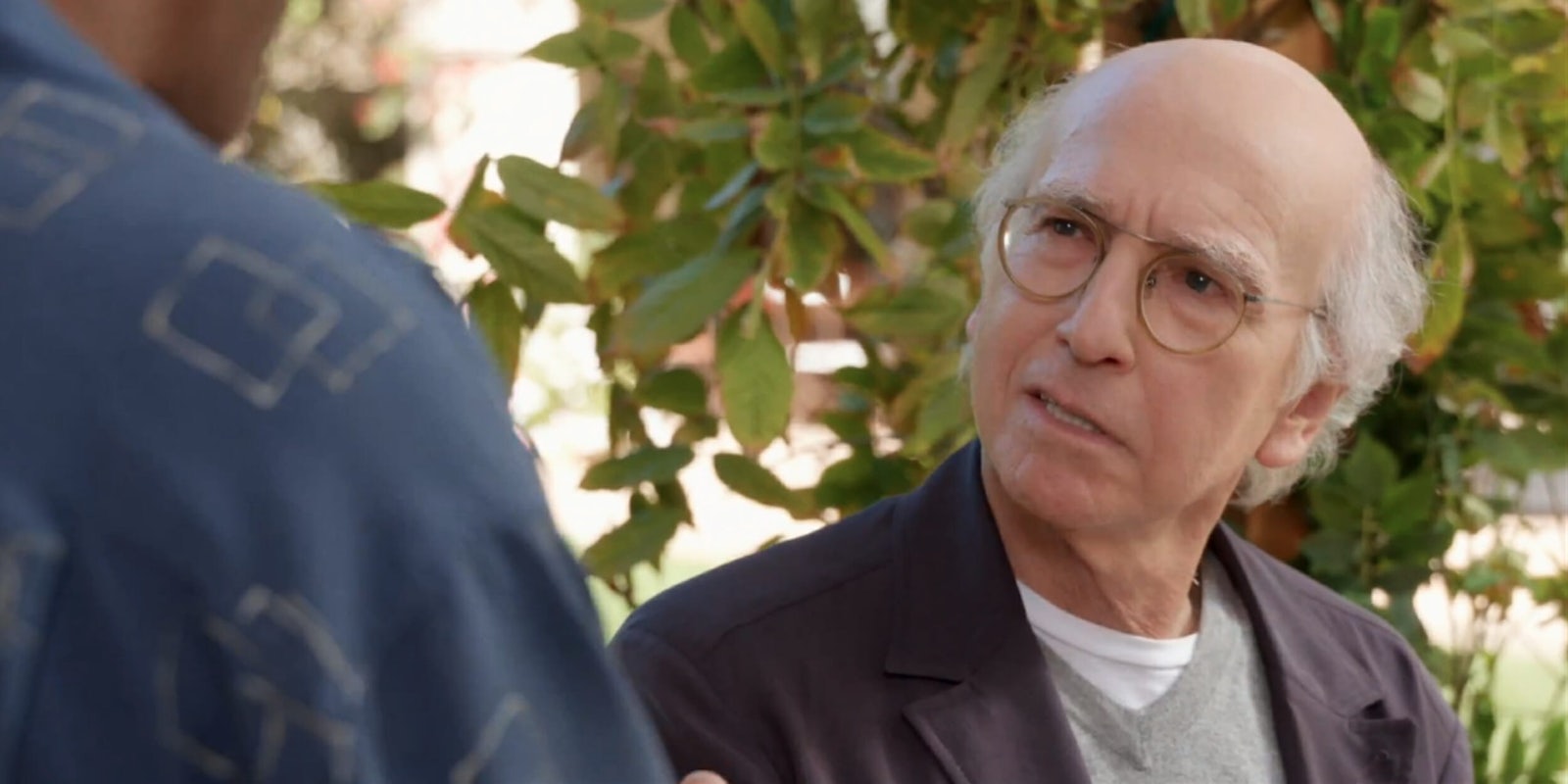Curb Your Enthusiasm ended six years ago with Larry David leaving the country to avoid Michael J. Fox’s charity event. It seemed like the perfect ending to a show about a misanthropic narcissist who works in show business. This was Peak Larry David.
In the six years between the end and return of the HBO series, the antihero has been duplicated in other TV comedies, with shows like You’re the Worst and Difficult People showcasing terrible people and the comedy drawn from their foibles—and vulnerabilities. When it debuted in 2000, Curb was working on a model of cringe comedy that would be imitated in the years to come. Can it evolve beyond that?
In the first episode of season 9, “Foisted!,” we’re reintroduced to our antihero—who is still a rich, white man—as he instantly offends a woman he mistakes for a man. As happens with Curb, this awkward situation haunts Larry, and the storyline leads him to attempt to help two women (Julie Goldman and Nasim Pedrad) straighten out their gender roles for their wedding. This ends poorly, but the subplot feels half-baked and more at home in 2007 than 2017.
If the show is trying to make a comment on a white man’s entitlement, it does better with what Larry’s been working on the past five years: the musical Fatwa!, in which he positions himself as America’s Salman Rushdie. The one part that feels relevant is Larry being denounced by the actual Ayatollah after doing an impression of him on Jimmy Kimmel Live!, and having to bumble through damage control and, though unseen, probably Twitter outrage.
Otherwise, “Foisted!” feels like a collection of subplots that don’t really work. Portlandia‘s Carrie Brownstein is Larry’s constipated assistant, Mara, who is disliked ostensibly because she’s bad at her job, though we never get a real sense of who she is. Larry attends a benefit hosted by his ex, Cheryl, but she never appears again. The only saving grace is Susie Green (Susie Essman), whose tolerance for Larry remains low.
Curb has evolved in a way: It’s become part of mashup and meme culture in its absence, its theme song the soundtrack for a long-suffering America. But it will be interesting to see how HBO makes good on its promotional taglines: “We need him now more than ever,” “The hero we need.” Will David help us out of these dark times, or mirror them on his show?


